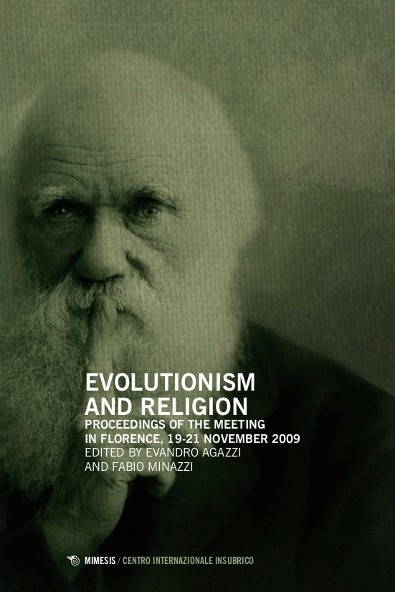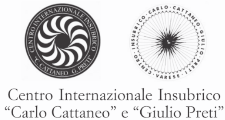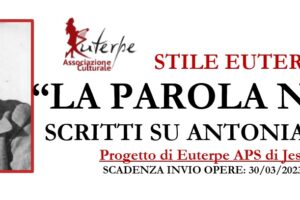Evolutionism and religion
Proceedings of the meeting in Florence, 19-21 november 2009

- L’idioma di quel dolce di Calliope labbro
- La Persona Down
- «Filmavo da indipendente, solo e contro tutti»
- Sulla filosofia della scienza di Evandro Agazzi
- Sul bios theoretikós di Giulio Preti (2 voll.)
- Il dottore e la faconda dottrina
- Evolutionism and religion
- Mario Dal Pra nella “Scuola di Milano”
- Varese Comunica
The theory of evolution has been often used in the last decades as a weapon in the atheistic fight against religion. This is in way strange, since peaceful relations between evolutionism and religion had been quickly attained already in the nineteenth century, after a few initial but isolated polemics.
The theory of evolution has been often used in the last decades as a weapon in the atheistic fight against religion. This is in way strange, since peaceful relations between evolutionism and religion had been quickly attained already in the nineteenth century, after a few initial but isolated polemics. Moreover, not only the “compatibility” of evolutionism and religion has been defended by many scholars on the ground of different arguments, but even theological perspectives explicitly “incorporating” evolution in a Christian worldview have been elaborated by such prominent figures as Drummond, Theilard de Chardin and Maritain. Yet a legal controversy lasted more than half a century in the courts of the USA has determined the revival of a dispute that has gradually acquired the overtones of an ideological confrontation.
APPROFONDISCITherefore, an unbiased analysis of this issue appears of significant cultural importance, and two sister Academies (the International Academy of Philosophy of Science and the International Academy of Religious Sciences) have intended to propose a modest contribution to this analysis in a joint meeting devoted to the theme Evolutionism and Religion that took place in Florence in 2009. The papers published in the present book offer four different approaches to evolutionism: the scientific one, the philosophical-epistemological one, the cultural one and the religious one. Finally a concluding section deals with the controversial issue of the “Intelligent Design”. Through this separate analysis several ambiguities can be dissipated, and the correct, delimited and specific points of view from which evolution can be considered are clarified. Within each one of these approaches, concepts and principles regarding evolutionism receive distinct but legitimate meanings. Since distinction does not entail separation, however, the intellectual effort of correlating such approaches appears as an intellectual challenge of undeniable difficulty but also of great cultural importance.
Evandro Agazzi (Bergamo, 1934) is emeritus professor of the Universities of Fribourg (Switzerland) and Genoa (Italy), and professor at the Metropolitan Autonomous University (UAM) of Mexico. He is President of the International Academy of Philosophy of Science, was President (and is at present Honorary President) of the International Federation of the Philosophical Societies and of the International Institute of Philosophy. Logic, philosophy and history of science, ethics of science, metaphysics are the fields he has especially cultivated. His production includes more than 70 authored or edited volumes and more than 900 scientific papers.
Fabio Minazzi (Varese, 1955) is Full Professor of Theoretical Philosophy of the Università degli Studi dell’Insubria (Varese, Italy), Scientific Director of the Centro Internazionale Insubrico, Director of the historical review Il Protagora (founded in 1959) and member of the International Academy of Philosophy of Science. Epistemology, history of science and of philosophy, ethics of science, and history of European critical rationalism are the fields he has especially cultivated. His production includes more than 80 authored or edited volumes and more than 300 scientific papers.
COMPATTA


